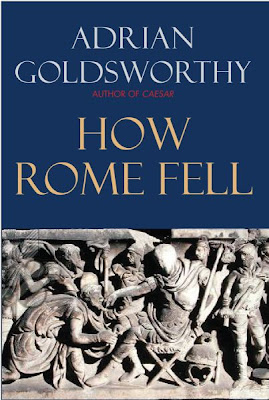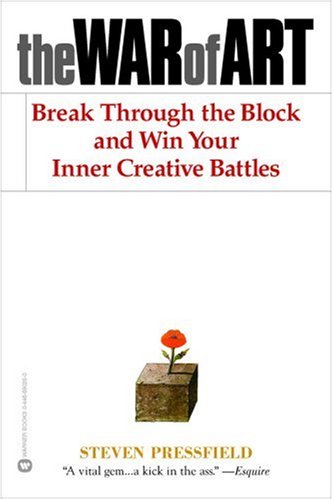Professor Richard Pipes, the Harvard University political scientist, is a seminal figure among sovietologists, historians and scholars of Soviet Studies. I highly recommend his trilogy, Russia under the Old Regime , The Russian Revolution
, The Russian Revolution and Russia Under the Bolshevik Regime
and Russia Under the Bolshevik Regime ( I would pair the first with W.Bruce Lincoln’s The Romanovs Autocrats of All the Russias
( I would pair the first with W.Bruce Lincoln’s The Romanovs Autocrats of All the Russias to see the differences between the
to see the differences between the  way eminent historians and political scientists handle the same topic). Dr. Pipes has written an op-ed for WSJ.com and it was reviewed by his former student, Dr. Thomas P.M. Barnett.
way eminent historians and political scientists handle the same topic). Dr. Pipes has written an op-ed for WSJ.com and it was reviewed by his former student, Dr. Thomas P.M. Barnett.
First the Pipes op-ed, then Tom’s assessment and then my comments:
“Pride and Power: Russia is caught between continents and haunted by its past,”
One unfortunate consequence of the obsession with “great power” status is that it leads Russians to neglect the internal conditions in their country. And here there is much to be done. To begin with: the economy. The Russian aggression against Georgia has cost it dearly in terms of capital flight. Due to the decline in the global prices of energy, which constitute around 70% of Russian exports, exports in the first half of 2009 have fallen by 47%. The stock market, which suffered a disastrous decline in 2008, has recovered, and the ruble has held steady, but the hard currency reserves are melting and the future does not look promising: The latest statistics indicate that Russia’s GDP this year will fall by 7%. It is this that has prompted President Dmitry Medvedev recently to demand that Russia carry out a major restructuring of her economy and end her heavy reliance on energy exports. “Russia needs to move forward,” he told a gathering of parliamentary party leaders, “and this movement so far does not exist. We are marking time and this was clearly demonstrated by the crisis… as soon as the crisis occurred, we collapsed. And we collapsed more than many other countries.”
….Today’s Russians are disoriented: they do not quite know who they are and where they belong. They are not European: This is attested to by Russian citizens who, when asked. “Do you feel European?” by a majority of 56% to 12% respond “practically never.” Since they are clearly not Asian either, they find themselves in a psychological limbo, isolated from the rest of the world and uncertain what model to adopt for themselves. They try to make up for this confusion with tough talk and tough actions. For this reason, it is incumbent on the Western powers patiently to convince Russians that they belong to the West and should adopt Western institutions and values: democracy, multi-party system, rule of law, freedom of speech and press, respect for private property. This will be a painful process, especially if the Russian government refuses to cooperate. But, in the long run, it is the only way to curb Russia’s aggressiveness and integrate her into the global community.
Read the rest here.
Now, Tom on Pipes:
Pipes the Elder on Biden comments: so impolite because they are so true
The biggest issue, like with China, is official corruption. The second is the pervasive depoliticization of the populace:  they’ve never really had any experience picking their own leaders over the past 1,000 years. That fend-for-yourself mentality pervades the political system and its foreign policy. All citizens want from the state is order, and what they miss most about the Soviet past was that it preserved Russia’s contiguous empire beyond that of any in Europe or Asia.
they’ve never really had any experience picking their own leaders over the past 1,000 years. That fend-for-yourself mentality pervades the political system and its foreign policy. All citizens want from the state is order, and what they miss most about the Soviet past was that it preserved Russia’s contiguous empire beyond that of any in Europe or Asia.
Russians have no idea who they are today: they don’t feel either European or Asian. Eventually, they’ll come to some conclusion about what sitting between those civilizations means in terms of identity.
So patience and care is required.
Very nice piece by Pipes.
Read the rest here.
Russia has had repeated bouts of historical, “geographic schizophrenia”: the long Tatar Yoke, the age-old conflict between Petrine westernization and Orthodox slavophilism, the iron Soviet dictatorship, especially Stalin’s democidal rule. Russia has neither joined the West nor considered itself to be fully Asiatic. Instead, the Russians inherited a “Third Rome” complex from Byzantium that has helped keep them isolated from their own best opportunities as a great power. Fringe groups of ideologues promoting nutty “neo-Eurasianism” in Russia play upon this historical legacy.
To the extent that the cold-blooded Vladimir Putin and the Siloviki clan have made their nation into “Russia, Inc.” – a gas and energy monopoly in the tattered rags of a nation- state, the long term trend will be accepting globalization and integration, regardless of any deep cultural angst and Ivan Q. Public Great Russian nationalist-chauvinism along the way.
ADDENDUM:
“The Western View of Russia” by George Friedman
I have a mixed opinion on STRATFOR’s analytical products but Friedman is playing to his strengths here in a piece that is measured and thoughtful. Hat tip to Lexington Green.
Forget Me Not. Obama’s Russian “Reset” Risks Alienating Eastern European Allies by Mike Wussow
Adds some regional context to Friedman’s post .

ago might have been finally located, solving one of archaeology’s biggest outstanding mysteries, according to Italian researchers.
 way eminent historians and political scientists handle the same topic). Dr. Pipes has written an op-ed for WSJ.com and it was reviewed by his former student,
way eminent historians and political scientists handle the same topic). Dr. Pipes has written an op-ed for WSJ.com and it was reviewed by his former student,  they’ve never really had any experience picking their own leaders over the past 1,000 years. That fend-for-yourself mentality pervades the political system and its foreign policy. All citizens want from the state is order, and what they miss most about the Soviet past was that it preserved Russia’s contiguous empire beyond that of any in Europe or Asia.
they’ve never really had any experience picking their own leaders over the past 1,000 years. That fend-for-yourself mentality pervades the political system and its foreign policy. All citizens want from the state is order, and what they miss most about the Soviet past was that it preserved Russia’s contiguous empire beyond that of any in Europe or Asia.


 the reader to an understanding how bottom-up, “blind”, systems work and the principles behind them. Highly readable and next to no jargon. Probably due soon for an updated edition though, given the scientific advances in research in network and complexity studies.
the reader to an understanding how bottom-up, “blind”, systems work and the principles behind them. Highly readable and next to no jargon. Probably due soon for an updated edition though, given the scientific advances in research in network and complexity studies. centuries as it was during the golden age of philosopher-warrior-emperor Marcus Aurelius. Or that there was no fall of the empire at all, just a gentle “transformation” into something new. Goldsworthy discusses the likelihood of Late antquity “paper legions” of Roman armies which, in any event, scarcely resembled in elan, tactics or fighting strength the ones that Julius Caesar wielded in Gaul. A tour de force marred only by a weird epilogue that ranges from pedestrian to ( in it’s last sentences) truly awful – was it it tacked on as an afterthought? Did the editor of the rest of the book die before it was completed? Regardless, How Rome Fell is a worthy addition to an collection of popular ancient histories.
centuries as it was during the golden age of philosopher-warrior-emperor Marcus Aurelius. Or that there was no fall of the empire at all, just a gentle “transformation” into something new. Goldsworthy discusses the likelihood of Late antquity “paper legions” of Roman armies which, in any event, scarcely resembled in elan, tactics or fighting strength the ones that Julius Caesar wielded in Gaul. A tour de force marred only by a weird epilogue that ranges from pedestrian to ( in it’s last sentences) truly awful – was it it tacked on as an afterthought? Did the editor of the rest of the book die before it was completed? Regardless, How Rome Fell is a worthy addition to an collection of popular ancient histories. is brilliant but because it is profound. Utilizing select personal vignettes and other anecdotes, Pressfield distills in everyday language the essence of what creative people need to understand if they are to succeed – concepts of “resistance”, which seductively undermine your efforts, and being a “professional”, which is the mindset that will get you there.
is brilliant but because it is profound. Utilizing select personal vignettes and other anecdotes, Pressfield distills in everyday language the essence of what creative people need to understand if they are to succeed – concepts of “resistance”, which seductively undermine your efforts, and being a “professional”, which is the mindset that will get you there.
 The Spartans were particularly keen on such military divination. If the signs (of a acrificed animal’s entrails) were not ‘right’, then even an imperatively necessary military action might be delayed, aborted or avoided altogether” (1)
The Spartans were particularly keen on such military divination. If the signs (of a acrificed animal’s entrails) were not ‘right’, then even an imperatively necessary military action might be delayed, aborted or avoided altogether” (1)

